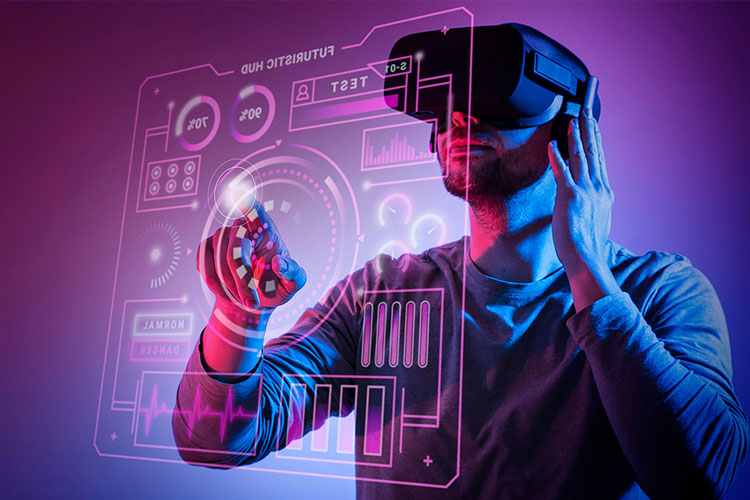
As technology perpetually advances, it serves as the catalyst for revolutionary change across virtually all domains of our daily existence. Ranging from the remarkable strides in artificial intelligence to the expansive realm of the Internet of Things, these innovations are not merely shaping our future; they’re profoundly reshaping entire industries. Before you delve into the details of these developments, it’s worth considering a glance at Limewin, where luck might just be on your side.
Artificial Intelligence (AI)
Artificial Intelligence, known for its capacity to handle and interpret extensive data, finds integration across diverse sectors. In the realm of healthcare, it plays a pivotal role in early detection of illnesses and tailoring individualized treatment regimens. Within the financial industry, AI-driven algorithms are catalyzing a transformation by redefining investment strategies and risk evaluation. AI-powered chatbots and virtual assistants are optimizing customer service operations and facilitating efficient business processes.
5G Connectivity
The remarkable features of 5G, characterized by its minimal latency and substantial data-carrying capacity, extend beyond facilitating rapid content streaming and swift downloads. These qualities empower remote surgical procedures, allowing medical professionals to execute precision operations from afar. Moreover, the technology is revolutionizing the gaming sector through cloud-based gaming platforms, while simultaneously laying the foundation for intelligent infrastructure.
Augmented Reality (AR) and Virtual Reality (VR)
AR is changing the way we shop by providing virtual try-on experiences for clothing and accessories, reducing returns and waste in the fashion industry. In the medical field, VR is helping patients cope with pain and anxiety through immersive therapies. Furthermore, AR is enhancing the training of professionals in fields like aviation, providing realistic simulations for skill development.
Renewable Energy and Sustainability
The amalgamation of sustainable energy sources, including solar and wind power, in tandem with state-of-the-art energy storage systems, stands as a cornerstone in securing a dependable energy grid. This multifaceted approach not only curbs our reliance on traditional fossil fuels but also acts as a potent tool in the battle against the release of harmful greenhouse gases. Simultaneously, the burgeoning affordability and widespread adoption of electric vehicles (EVs) play a dual role, significantly reducing air pollution and broadening the reach of environmentally friendly transportation options to a more diverse audience. Furthermore, numerous enterprises are enthusiastically adopting circular economy principles, characterized by resource recycling and reutilization strategies, as a tangible testament to their unwavering commitment to waste reduction and the promotion of ecologically sound practices.
Cybersecurity and Privacy
Cybersecurity extends beyond safeguarding information; it encompasses the protection of essential infrastructure, including electricity networks and water distribution systems. Cutting-edge privacy-preserving techniques, such as zero-knowledge proofs, empower users to verify their identities without exposing sensitive personal information. Biometric methods, ranging from facial recognition to fingerprint scans, are gaining enhanced security features and witnessing widespread adoption in ensuring access control and identity verification.
Quantum Computing
Quantum computing is poised to revolutionize drug discovery by simulating molecular interactions accurately, potentially leading to the development of new medicines. It has the potential to crack currently unbreakable encryption methods, raising concerns about data security but also opening doors to quantum-safe cryptography. Quantum computing will accelerate simulations in climate science, offering more accurate predictions for climate change and its impacts.
Robotics and Automation
In agriculture, robots are revolutionizing harvesting, allowing for precise, efficient, and pesticide-free crop collection. In the manufacturing sector, automation is streamlining production lines and enabling mass customization of products. As robots become more sophisticated, they are taking on roles in elder care and education, addressing societal challenges.
Space Exploration
Space tourism is quickly becoming a reality, offering civilians the chance to experience space travel. Private companies are setting their sights on asteroid mining, potentially unlocking vast resources for Earth. Space observatories, such as the cutting-edge James Webb Space Telescope, are poised to bring about a profound transformation in our comprehension of the cosmos and the quest for alien existence.
Edge Computing
Edge computing is empowering autonomous vehicles to make split-second decisions, enhancing road safety and efficiency. In healthcare, it’s enabling real-time patient monitoring and diagnosis, reducing the time between detection and treatment. Smart cities are utilizing edge computing to optimize traffic signals, reduce energy consumption, and improve public safety through faster data processing at the source.
Biometric Authentication
Biometric authentication, including facial recognition and fingerprint scanning, is transforming the way we access our devices and secure sensitive information. These technologies are not only enhancing security but also simplifying our daily interactions with technology, from unlocking smartphones to accessing secure facilities.
Agricultural Technology (AgTech)
AgTech innovations, such as precision agriculture and automated farming equipment, are optimizing crop yields and resource use. Drones and satellite technology are providing farmers with valuable data for decision-making, while sensors are monitoring soil conditions and ensuring efficient water and fertilizer use.
Neurotechnology
Advancements in neurotechnology are enabling direct brain-computer interfaces, allowing individuals with disabilities to control technology using their thoughts. Brain-computer interfaces are also being explored for enhancing cognitive performance and offering new ways to interact with virtual environments.
Human Augmentation
Innovations in human augmentation are elevating the mobility and abilities of individuals with physical limitations. These cutting-edge advancements are under scrutiny for their potential to augment the physical capabilities of laborers in sectors like construction and manufacturing, promising a future where human-machine collaboration sets new benchmarks for performance and productivity.
Emotional AI
Emotional AI, also known as affective computing, is paving the way for more emotionally intelligent technology. It’s being used in applications like virtual mental health therapists and chatbots that can detect and respond to human emotions. This technology has the potential to significantly improve mental health support and customer service experiences.
Bioinformatics
The importance of Bioinformatics lies in its capacity to effectively manage and decode the complexities of biological data, encompassing activities like genomic sequencing and the discovery of new pharmaceuticals. In the contemporary context, as precision medicine gains traction, bioinformatics assumes an ever more central role in customizing medical treatments to cater to the distinct requirements of individual patients.

